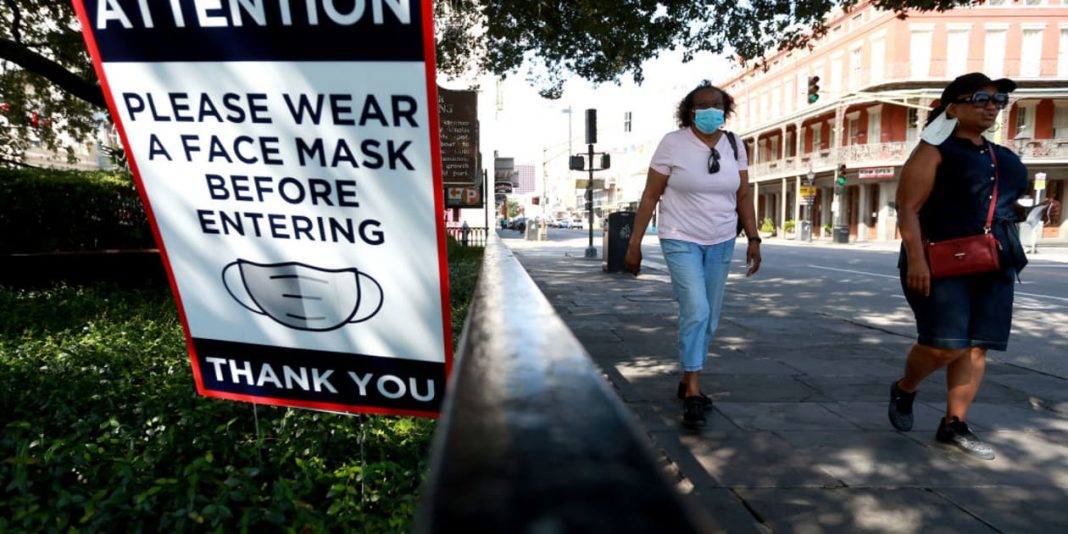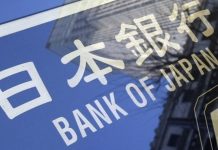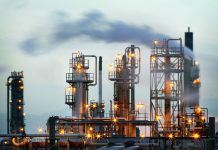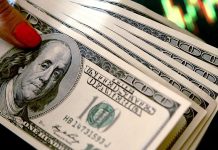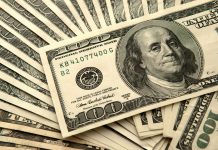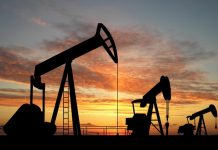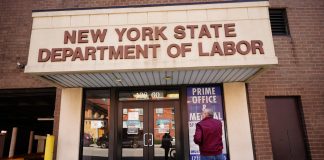KEY POINTS
- Mohamed El-Erian told CNBC on Thursday that the U.S. economic recovery has been held back by Americans not trusting each other on the coronavirus.
- “It is very difficult for any individual to be certain whether the other person is healthy or not, and that other person is not certain whether you’re healthy or not,” El-Erian said on “Squawk Box.”
- The chief economic advisor at Allianz called it “human counterparty risk,” comparing it to a lack of trust banks had in each other during the financial crisis.
The U.S. economic recovery has been held back because Americans lack trust with one another over the coronavirus, Mohamed El-Erian told CNBC on Thursday.
“It is very difficult for any individual to be certain whether the other person is healthy or not, and that other person is not certain whether you’re healthy or not,” El-Erian said in a “Squawk Box” interview. “So until we have a way of saying, ‘the probability of us getting sick is low,’ then you’re going to have hesitancy.”
El-Erian, chief economic advisor at Allianz, compared the situation to increased counterparty risk during the financial crisis, when banks lost confidence in other financial institutions being able to meet their obligations in a transaction.
“When banks don’t trust each other, they step back. What we’re having here is human counterparty risk,” he said. “I know lots of people who are able to go out and interact in the economy. Restaurants are open, but they won’t go. We have to learn to deal with this human counterparty risk.”
El-Erian’s comments Thursday came shortly after the latest round of initial jobless claims showed 881,000 new filings for benefits last week, better than the 950,000 expected by economists. The Labor Department data indicated some progress in the U.S. jobs market recovery, but nonetheless shows the challenges that remain ahead for the economy as it digs out of deep hole caused by the pandemic.
Certain business restrictions, meant to help slow the spread of Covid-19, remain in states across the U.S., which is likely inhibiting some economic improvement. But El-Erian stressed that a lack of desire from consumers to participate in the economy continues to slow the pace of recovery.
“Yes, some people are not able to go back to work. Some people are not able to engage in economic activity,” the former CEO of investment giant Pimco said. “But there are others that are not willing to do so. They’re able but not willing.”
“Until we sort those two things out, we’re going to have what I call the square-root recovery, where we don’t improve as fast as we’d all like to,” he added, describing the shape the chart could take.
The number of new daily Covid-19 infections in the U.S. has improved since a summer surge in cases, particularly in the American South and West. After falling to around 20,000 per day at the end of May, new daily infections spiked to around 70,000 at some points July.
However, the roughly 40,000 new cases per day in the U.S. remains “unacceptably high” headed into Labor Day weekend, according to Dr. Anthony Fauci, director of the National Institute of Allergy and Infectious Diseases.
“We know from prior experience as you get into the holiday weekend, the Fourth of July, Memorial Day, there’s a tendency of people to be careless somewhat with regard to the public health measures,” Fauci said Wednesday in an MSNBC interview. “I want to use this opportunity to almost have a plea to the people in this country to realize that we really still need to get our arms around this and to suppress these types of surges we’ve seen.”
Due to his belief that the labor market and Covid-19 situation in the U.S. are linked, El-Erian said he also believes the holiday weekend will prove critical.
“I cannot stress how important Labor Day is going to be in terms of determining what the fall looks like for economic activity and health,” he said, potentially suggesting another spike in cases will mean more government restrictions on businesses and more weariness from consumers.
“We can live through Covid in a healthy and economically productive way, and we can transition to a vaccine, but it requires behavioral changes,” he added.




















